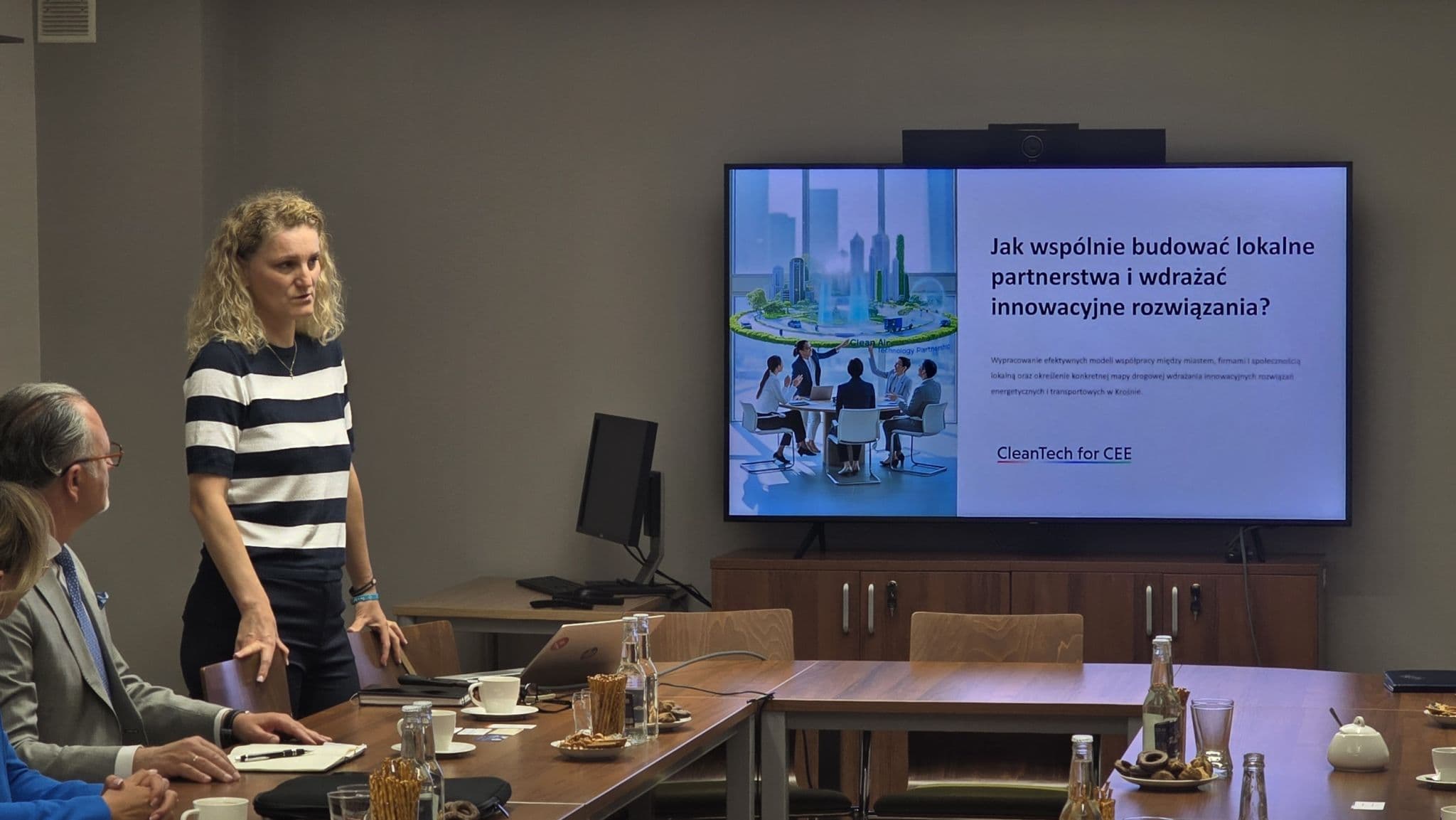Krosno Aims to Build Innovation Ecosystem for Clean Air Technologies

Cleantech for CEE conducted an intensive workshop in Krosno, Poland, titled "Local Partnerships and Technologies for Clean Air - A Roadmap for Krosno." Led by facilitators Magdalena Jabłońska and Mirek Janik, the session focused on building the city's technological absorption capacity (TAC) – the crucial ability to identify, adapt, and implement innovative solutions for clean air and sustainable energy.
The workshop brought together key stakeholders including Mayor Piotr Przytocki, Deputy Mayor Miranda Trojanowska, representatives from Inkubator Przedsiębiorczości Krosno, Państwowa Akademia Nauk Stosowanych, MPGK Krosno, Zespół Szkół Mechanicznych, and various NGOs and business organizations.
Participants worked to develop a collaborative roadmap addressing three critical questions: how to build local partnerships, implement new technologies, and create solutions in heating, transport, and energy management. Through systematic assessment of Krosno's technological readiness across infrastructure, human resources, institutional capacity, cross-sector collaboration, social engagement, and data systems, the group identified both strengths and barriers. The city showed significant potential in Clean Air program implementation and educational initiatives, while recognizing needs for enhanced competencies in e-mobility and building energy efficiency.
The workshop produced a strategic action plan positioning Krosno as a model for medium-sized CEE cities. By creating a formal innovation ecosystem, establishing testing zones for cleantech solutions, and fostering partnerships between municipal authorities, academic institutions, and private sector, Krosno is building foundational capacity to transform from technology consumer to innovation leader. This approach demonstrates that regional cities can drive sustainable transformation by focusing not just on technology acquisition, but on developing the organizational, collaborative, and absorptive capabilities necessary to make those technologies work in their unique local contexts.